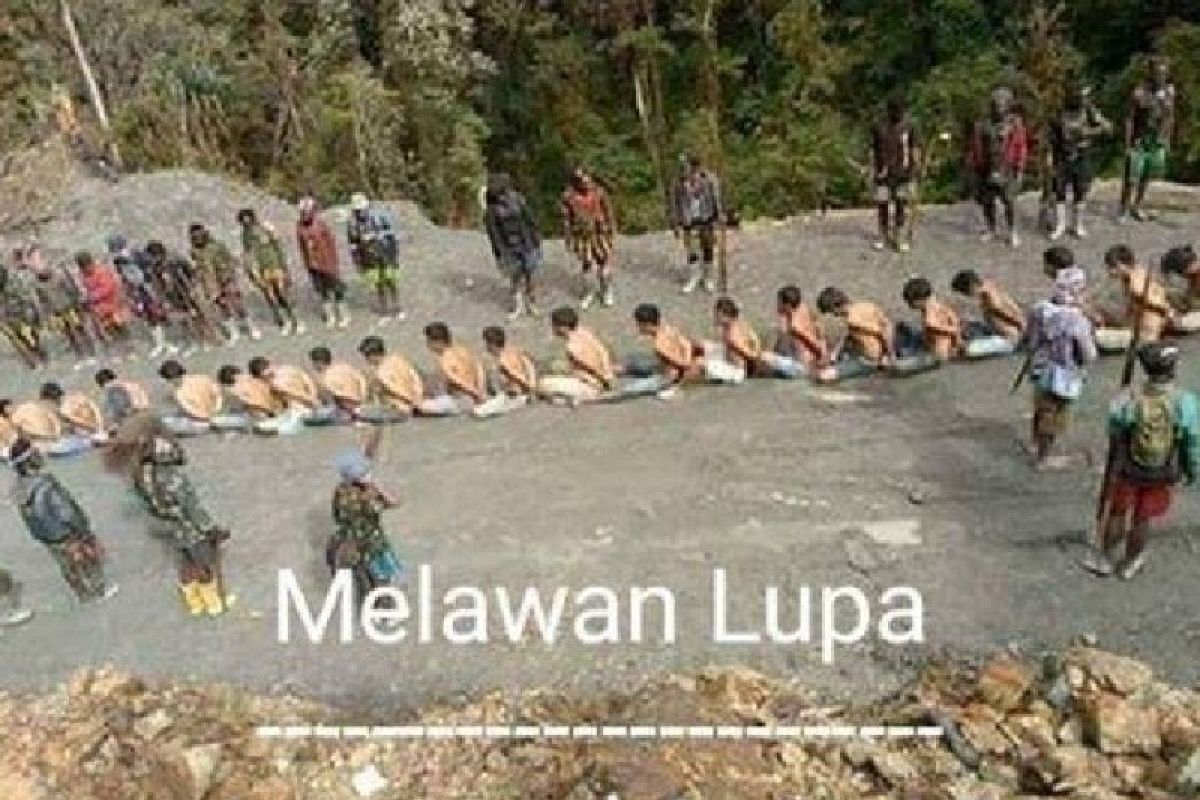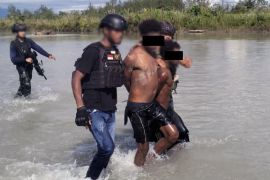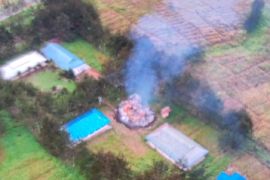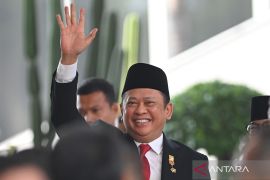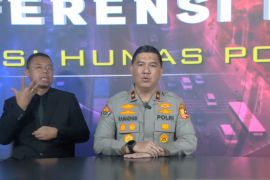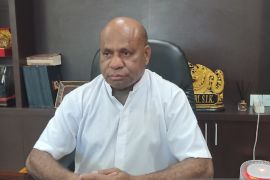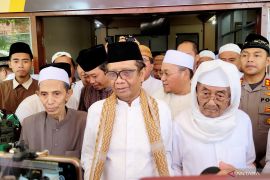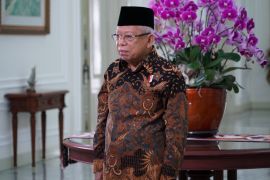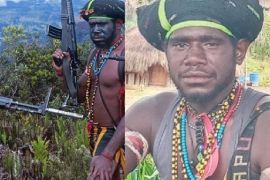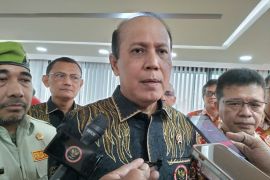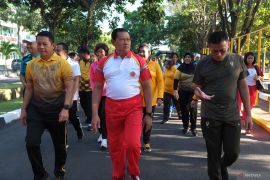The change in handling patterns aims to minimize civilian casualties on account of the fact that armed criminal groups (KKB) often use members of the community as a shield.
Changes in the pattern of handling security disturbances are expected to reduce the number of victims, both civilians and security personnel.
“Currently, we do not prioritize approach from the TNI and Polri but the approach from the regional government to help in handling this problem,” Papua Police Chief Inspector General Mathius Fakhiri stated.
Fakhiri explained that the decision was taken since armed groups were local residents, and some of them had relatives.
Using the local government approach is expected to reduce the number of victims, especially civilians, who are not directly involved with armed groups.
In handling this matter, the regional government can involve various parties, for instance, community leaders, religious leaders, and youth, in overcoming security disturbances in the area.
By continuing to apply this persuasive approach, armed groups are expected to become aware and no longer cause trouble, for instance, by attacking the public and security forces.
Security disturbances by armed groups frequently occur in several provinces in Papua, such as in the Papua Highland and Central Papua Province, including Puncak, Dogiyai, Intan Jaya, Yahukimo, Pegubin, Nduga, Mimika, and Jayawijaya districts, as well as Jayapura City.
Empower the communities
Former head of Puncak Jaya District, Yuni Wonda, stated that his area was once known as a red region due to frequent security disturbances from armed groups that killed not only security forces but also civilians.
However, currently, the number of incidents of security disturbances had reduced, as his side had embraced and empowered them, including the former members of armed groups.
"We are trying to empower local residents to have positive activities and no longer join armed groups," Wonda stated.
He explained that not all armed groups genuinely wanted to separate Papua from the Unitary State of the Republic of Indonesia. There are also groups that commit violent acts merely since they are following other groups’ hype. Thus, by embracing them, the red region is now safer.
While recruiting employees, such as state civil apparatus (ASN), Wonda provides opportunities for the community based on the 80:20 pattern, wherein 80 percent is for indigenous Papuans (OAP) and 20 percent for non-OAP.
Apart from being recruited as ASN, there are also those who have become supervisors of various development projects implemented in Puncak Jaya.
During the recruitment process, Wonda did not focus on their level of education since several of them have limited or minimum education.
Those who do not have a high level of education will be recruited to become supervisors of various development projects.
“Do not look at their certificates, education, or their skills. Empower them as supervisors to manage construction development until it is finished,” he emphasized.
The need for job opportunities
Commander of the Cartenz Peace Task Force 2023 Senior Commissioner Faizal Rahmadani noted that most of the perpetrators of armed crimes are youths under the age of 25.
Since they are jobless and have limited access to job opportunities, they become easily provoked and end up joining armed groups.
Therefore, the participation of all parties is deemed crucial, especially to provide job opportunities, so that they can engage in positive activities and earn income.
"The local government must gather all parties and provide jobs and recruit them, so that they have activities and earn income," Rahmadani remarked.
He noted that several young people joined the KKB in several areas, including in the Pegunungan Bintang District, Papua Highland Province.
Meanwhile, Military Region Commander (Danrem 172/PWY) of Wamena, Papua Highland, Brigadier General JO Sembiring stated that his side, through the village superintendent (Babinsa), would continue to disseminate information to the surrounding community and urged residents to report suspicious acts that could potentially cause security disturbances.
Social communication conducted on the sidelines of patrols to the villages can bring the community closer to the security forces, especially the TNI personnel, he remarked.
This effort is expected to increase public trust to maintain the relationship between TNI and the residents. Thus, they would not hesitate to report incidents in their area to security forces.
"We must be able to establish intense communication with the people and provide assistance if something bad happens," Sembiring stated.
Hence, the regional government must also actively cooperate with all parties, including the TNI and Polri, to realize effective synergy in maintaining security and order.
"Embrace everyone and empower the community. (It is) because this is the key to the success of a leader, which is to make the region safe again,” Wonda emphasized.
When the situation is safe and comfortable, various developments can be conducted to offer benefits and income to the community.
"Please replicate our approach to the people in Puncak Jaya," Wonda remarked.
Currently, the Papuan Police have released the list of 106 KKB members, who are included on the wanted list or DPO. The police will enforce the law in a measurable manner on those found to continue to commit acts of violence, both against civilians and security forces.
"Law enforcement must be conducted if we found (breach of the law) in the form of violence. However, the action must be taken in a measured way, for those who are on the DPO list,” Rahmadani emphasized.
All approaches taken by the state are aimed at creating regional order and security, which in turn will boost the welfare of Papuan people.
Editor: Rahmad Nasution
Copyright © ANTARA 2023
